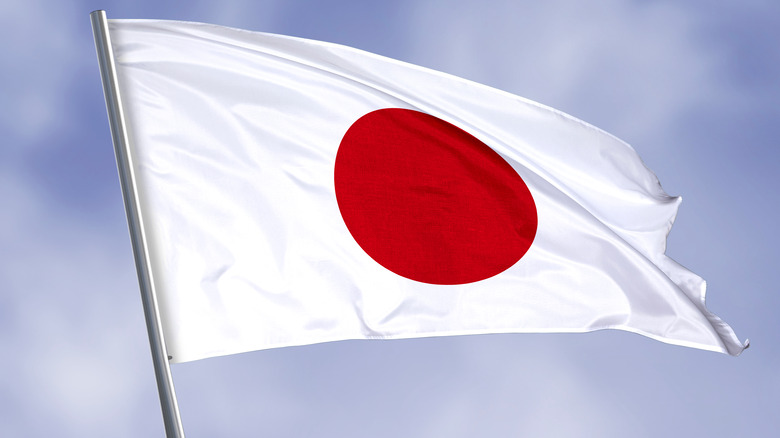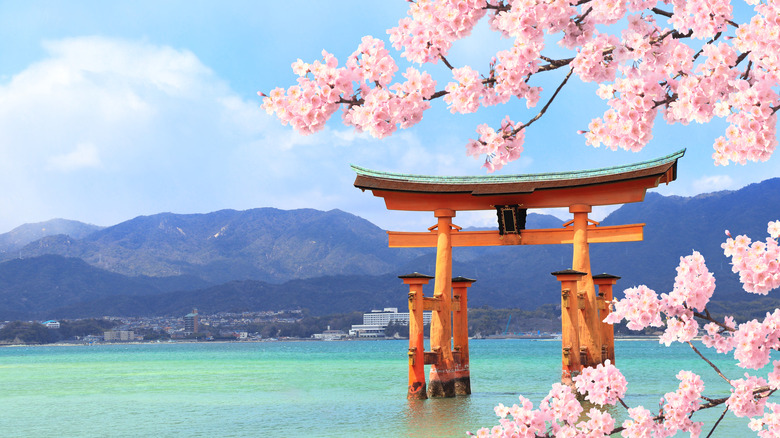This Is How Japan Got Its Name
Japan, which is largely known as Nippon or Nihon (spelled 日本) to the Japanese people who live there, has been occupied for millennia, according to Britannica, though the name itself dates to the 7th or 8th century AD (via The Culture Trip). All three names likely have the same origin. The name "Japan" is thought to be how European people heard the name "Nippon."
But why does Japan have this name, and what does it mean? Before Japan was Japan (or Nippon), it was known as Wa, Wo, or Wakoku, which was likely a name given to the people living on the Japanese islands by the Chinese. Japan was not yet a country, according to these Chinese accounts, but instead the islands were home to "more than 100 states, "who bring tribute at fixed intervals," according to Han-era histories (via Britannica). The largest state in Japan at the time was Yamato, which adopted the character for "Wa" in the spelling of their own name.
Nippon: the Land of the Rising Sun
But as a Japanese national identity solidified, the country's leaders became dissatisfied with their Chinese-derived exonym, and created a new name for themselves: Nippon.
During Prince Shōtoku's reign in the 7th and 8th centuries, he initiated a more even-handed diplomatic relationship with China (via Britannica). Whereas previously Japan had acted as a tributary state to China, Shōtoku referred to China as the land "where the sun sets," while Japan was the land "where the sun rises." By the time Marco Polo visited China in the 13th century, the country was officially called "Nippon" — which literally means "the sun's origin" (per Japan Luggage).
In parts of China, Nippon was pronounced "Cipan," and Polo wrote it in his diaries as "Cipangu," according to Culture Trip. Over time, as the name traveled through various European languages, this transformed into the English "Japan." It's still known the world over as the Land of the Rising Sun.

